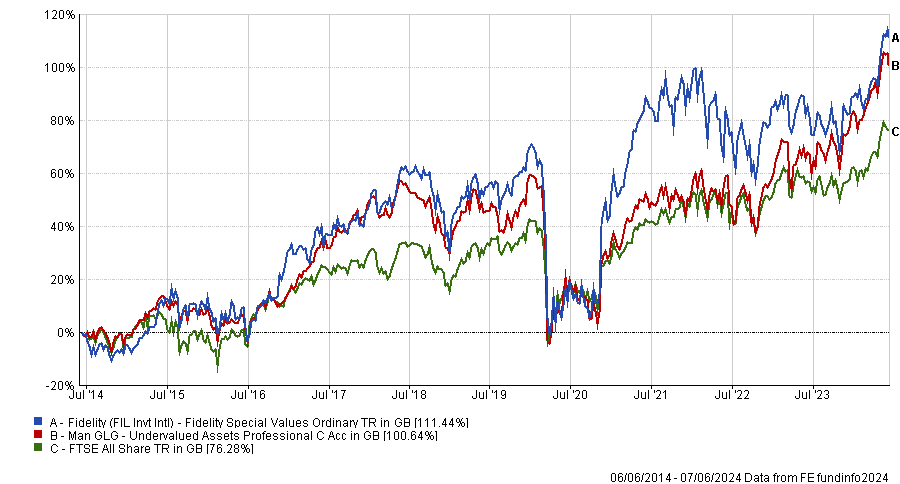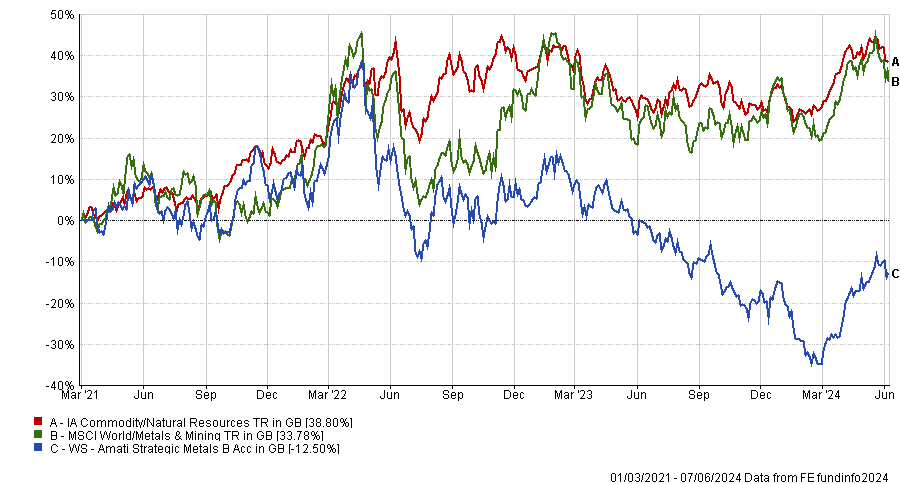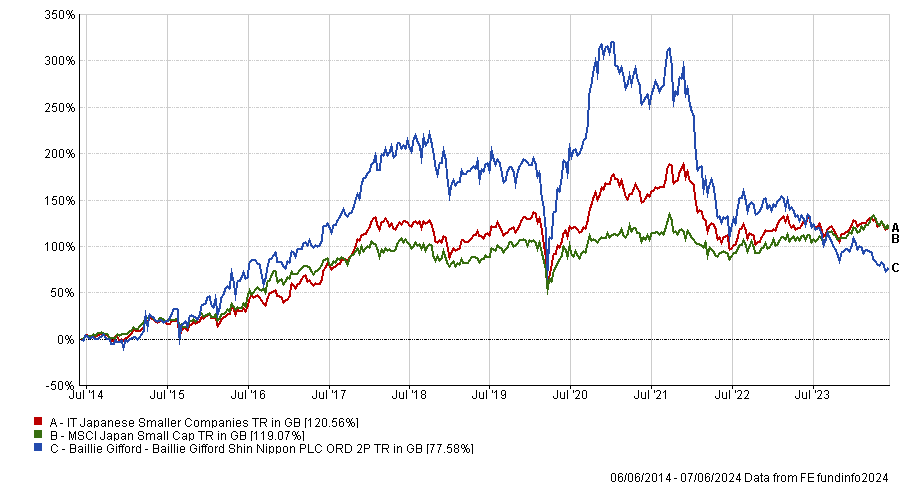Investors have benefited from several rallies since the beginning of the year, with a range of indices reaching all-time highs, including the S&P 500, the Nikkei 225 and even the FTSE 100. This has left some investors feeling uneasy about lofty valuations.
For investors on the lookout for more attractively-priced opportunities, Rob Morgan, chief investment analyst at Charles Stanley, pointed to three underappreciated sectors.
First up is the UK, which despite the recent rally, remains cheap compared to its international peers and its own historical valuations.
Although Morgan finds UK equities attractive across the board, small- and mid-cap (smid) stocks are even cheaper than FTSE 100 blue-chips and should benefit from an improving economic backdrop, as well as renewed interest from private equity buyers, he said.
Moreover, the liquidity profile of UK equities, especially in the smid-cap space, has significantly diminished, which means “it won’t take much for them to surge”, according to Morgan.
For investors hoping to benefit from a re-rating of UK cheap stocks, he suggested Fidelity Special Values and Man GLG Undervalued Assets.
“Fidelity Special Values focuses on finding underappreciated bargains in an already cheap market,” he said.
“Man GLG Undervalued Assets also adopts a value-focussed approach while aiming to ensure good quality.”
Performance of funds over 10yrs vs benchmark

Source: FE Analytics
Although Morgan has a preference for UK smid-caps, he also expects the FTSE 100 to perform well. Given its large weightings in banks, oil companies and commodities, persistent inflation should be a tailwind for the blue-chip index.
Mining is another underappreciated area that Morgan highlighted.
Although mining companies have faced issues such as poor capital discipline, failure to control costs and overleverage in the past, they are now benefiting from the transition to a low-carbon economy.
Morgan said: “It will require a lot of raw materials, especially metals and we’re now seeing a scramble for raw materials. In spite of this, mining companies are under-owned as their growth potential is underestimated.”
Miners tend to pay dividends, although they can be lumpy. Morgan also warned that mining is a highly volatile sector and that investors should get in with a five- to 10-year view.
For investors capable of stomaching this volatility, Morgan recommended WS Amati Strategic Metals.
Performance of fund over 10yrs vs benchmark and sector

Source: FE Analytics
“The fund takes a highly active approach to investing in the mining sector, aiming to actively manage an optimal combination of precious, specialty and base metals at any given time,” he explained.
“It holds a concentrated portfolio of 35 to 45 companies, including higher risk smaller stocks, so the individual selection by its managers will have a significant bearing on returns. In particular, it targets specialty metals companies which will play a future role in the global energy transition such as battery metals like lithium which is vital in electric car batteries.
“It’s definitely not for the faint hearted but could be an interesting satellite holding in a portfolio for the long term.”
Finally, Morgan also finds Japanese small-cap growth stocks compelling, as they remain attractively valued compared to the rest of the market.
Japanese large-cap exporters have made significant strides in a short amount of time as corporate reforms narrative has played out, with the weak yen providing an additional tailwind. Therefore, they are not as cheap as they used to be.
However, Japanese companies focusing on the domestic market haven’t benefited to a significant degree from those tailwinds, especially in the small-cap growth space where valuations have derated as global interest rates rose and the yen fell.
As a result, they are now far cheaper and widely overlooked, but could benefit from global interest rate cuts as well as their own organic growth over time.
To gain exposure to this space, Morgan highlighted Baillie Gifford’s Shin Nippon trust, which has struggled since late 2021.
Performance of investment trust over 10yrs vs benchmark and sector

Source: FE Analytics
“Shin Nippon’s collection of small, more growth-orientated companies have been of little interest to their traditional domestic buyers who have favoured dollar-earning exporters or simply investing overseas.
“However, following a brutal derating, there appears to be value on offer with growth companies on undemanding valuations. It might be a slow burn, but as sentiment improves and, ideally, the yen stabilises, it could be a profitable area to focus on,” Morgan explained.
“This trust is a higher risk option in an already-specialist area as it has gearing of around 20%, plus the discount to NAV of the shares fluctuates. At the moment it is around 15%, but recently it was as much as 20% having traded at a very small premium at the start of 2022.”





